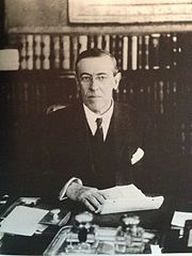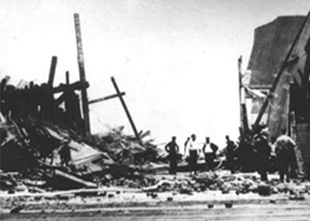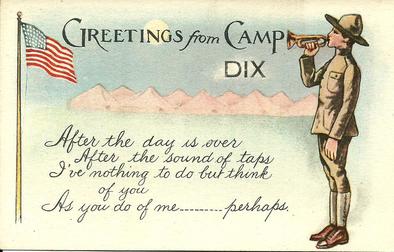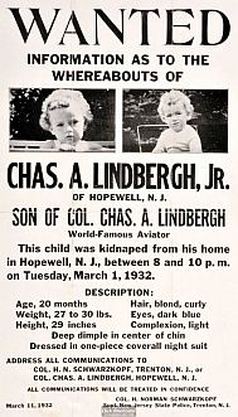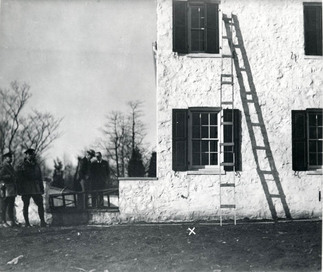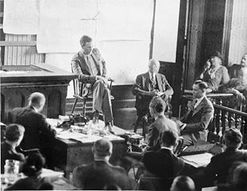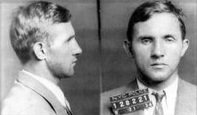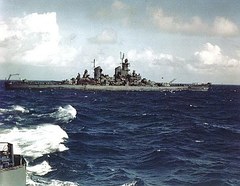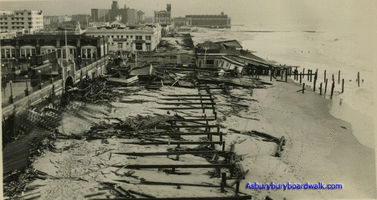-- New Jersey Timeline 1900-1949
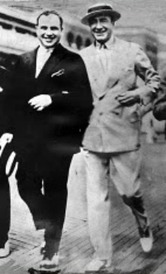 Al Capone (left) and Nucky Johnson on Atlantic City boardwalk during 1929 conference. Image Wikimedia Commons Al Capone (left) and Nucky Johnson on Atlantic City boardwalk during 1929 conference. Image Wikimedia Commons
1929 - The "Atlantic City Conference" hosted by Enoch "Nucky" Johnson begins on May 13 for three days of talks among the nation's top mobsters. The participants include Al Capone, Lucky Luciano, Meyer Lansky, Bugsy Siegel, Dutch Schultz, Abner "Longy" Zwillman and others. It reportedly discusses avoiding the publicity generated by the "St. Valentine's Day Massacre" in Chicago directed by Capone earlier in the year; reducing competition among the mobs; and planning to compensate for lost revenues from the expected repeal of Prohibition by expanding their roles in illegal gambling and prostitution.
- The "Diving Horse" attraction begins on Atlantic City's Steel Pier, with a horse and rider diving some forty feet into a tank of water filled to a 12-foot depth. The attraction continues until the Pier is closed in 1978. - The October 29 stock market collapse is followed by the Great Depression of the 1930s. In New Jersey, per capita income falls from $839 in 1929 to $433 in 1933 and some 140 banks close between 1928 and 1933.
|
|
- Bruce Wright, a son of bi-racial parents, is awarded a scholarship to Princeton University but after arriving on campus and his race is discovered, is denied admission by University officials, who later advise him in a letter that their action was due to the school having "no colored students" and that "a member of your race might feel very much alone." Wright later becomes a prominent New York State judge and author known for his criticism of racism in the setting of bail and other steps in the judicial process, and some 65 years after his exclusion returns to Princeton when its graduating class of 2001 names him as an honorary member of the class.
1936 - After an appeal of his conviction to the US Supreme Court is denied and the expiration of temporary stays of execution granted by Governor Harold Hoffman, Bruno Richard Hauptmann is executed at 8:47 p.m. on April 3 in the electric chair at Trenton State Prison for the kidnapping and murder of Charles A. Lindbergh, Jr. |
|
1937 - The German airship Hindenburg is consumed by fire as it hovers to land on May 6 at the Lakehurst Naval Air Station in Ocean County. Thirty-six passengers and crew die in the disaster, whose cause is generally thought to have been static electricity caused by atmospheric conditions and a spark igniting a hydrogen leak from the ship.
|
|
1938 - On October 30, director and actor Orson Welles broadcasts the radio play War of the Worlds describing a landing of Martians in Grovers Mill in West Windsor, which produces panic among those believing it is an account of a real event.
- US Army's first radio-based aircraft detection and ranging system (later called radar) is developed by the Army Signal Corps at Fort Monmouth. |
|
|
